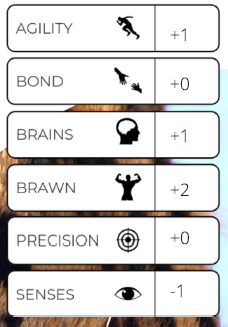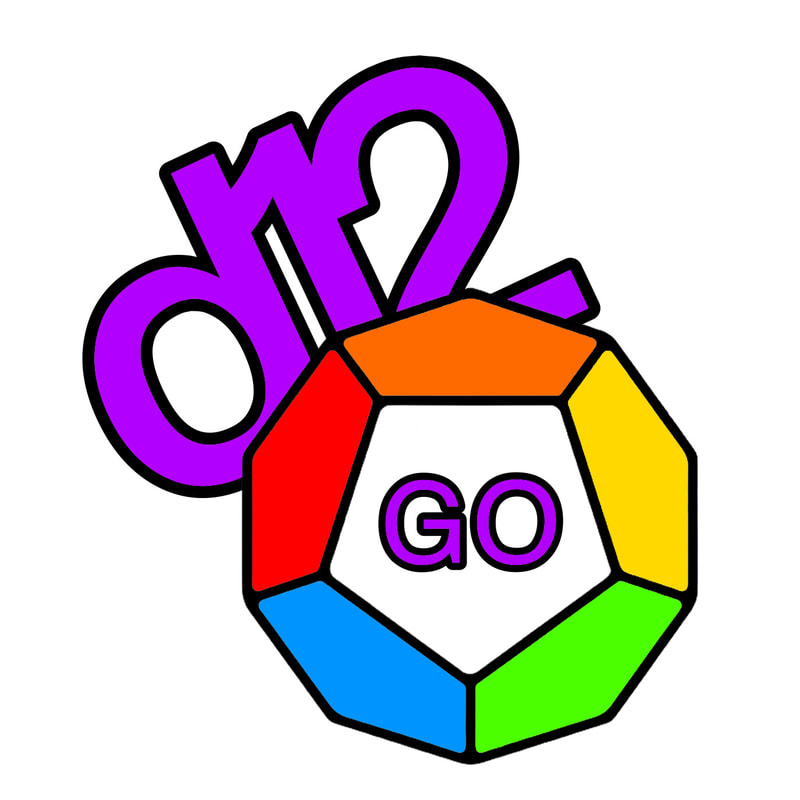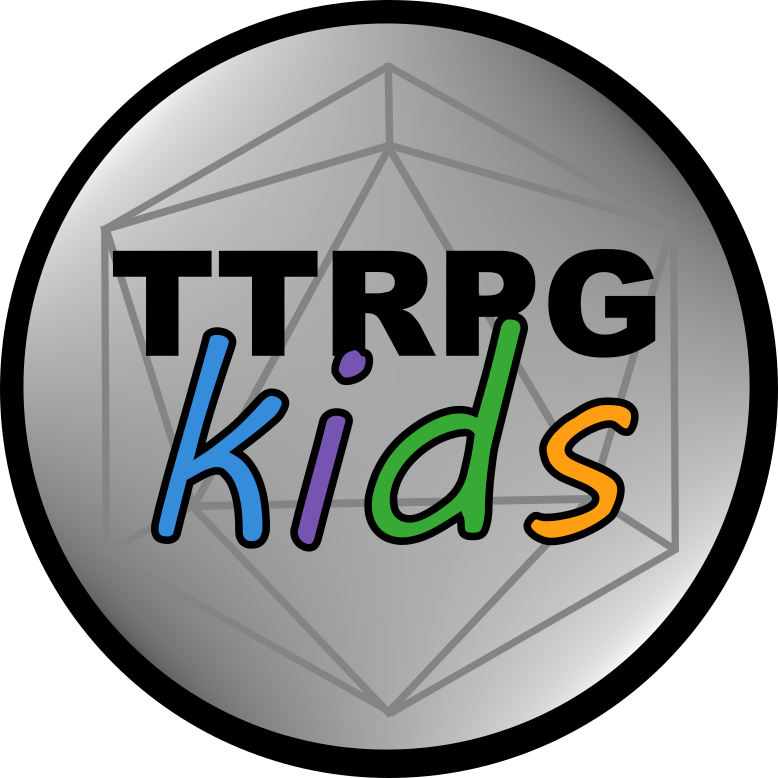Review of d12go, a system for any adventure and any age!
Note: This post may contain affiliate links. At no additional cost to you, I may earn a small commission from purchases made using them. TTRPGkids uses this to keep the site going. Read full disclosure here.
Jump to:
d12go is a system made for all ages!
d12go is a rules-lite tabletop RPG system that uses one 12 sided die (1d12) for all of its rolls and sets up a character sheet, rules, opponents, and challenges based around this one die.
The character sheet is easy to track, and the rules have enough nuance to be interesting without going too far and getting overly complicated, giving a good balance of easy understanding for young players and options for strategy for older players. Because there’s only 1 die to keep track of, it made it really easy to carry out any rules and rolls. Players do need to be able to count and add to 18 with help from a game guide, and they should be able to play on their own otherwise!
d12go works for any setting
d12go is a setting agnostic system, which means that it can be used for any genre of adventure. So, whether you’re playing a high fantasy story, sci fi space adventure, or woodland animal tale, you can drop that story into this system with no problem.
The stats are set up to not lean towards any one particular genre, and the specialties allow you freedom to fit into any type of world. For example, in the game that we played, my kid wanted to play as Hilda from the Hilda comics and TV show. We gave Hilda stats that matched her character and gave her some specialties that lended towards her interacting with rock trolls and teaming up with her friends so we could focus on the elements that were really important to that setting… and that we probably couldn’t have specifically found with another system.
Your character can be anyone in d12go

Creating a character in d12go only took us a few minutes. There’s suggested levels for characters based on different types of gameplay, and these levels tell you how many points you can assign towards your stats and specialties. From there, you pick your character’s name, stats, specialties, and flaws… and you’re all set!
Like I said in the section on setting, this game works for any genre, so your character can also be anyone or anything that you want as long as you follow the frame for assigning points from the level chosen for the game. We were easily able to make a level 3 Hilda character for our game, and then I also messed around making a few other characters to see what this could do. Each only took about 5 minutes to make, and I created a mech suit fighter, a wizard with ice spells, and a cheery Care Bear type character that all worked within the system’s rules.
Intuitive and well organized mechanics in d12go
Rolling for actions
To roll for an action, whether that’s to complete some kind of challenge, like climbing a cliff face, or a contested situation, like fighting a creature, you roll 1d12 and add modifiers from your stats and specialties to get a total score. From there, the game master compares the result to the success tables in the book to determine what type of success or failure the roll is.
What I liked about this is that, for the player, they just need to focus on what they’re rolling and a couple numbers on their sheet, so it was pretty easy for my kid to handle on his own. Then, for the GM, all the results are on a table, which, I might add, is very well laid out, so there’s not a ton of guesswork about trying to adjust judgements on the fly. Gameplay moved quickly, and it was really clear what the expectations were.
Game changers and flaws
I also really liked how this game handled debuffs or negative points to a score. You can be inflicted with game changers that give you negative points to certain rolls if you’re hit with a strong attack or potentially get a REALLY low roll at some point. You also choose a flaw in the beginning of the game for your character that can cause a negative modifier to be applied to some of your rolls (i.e. if your character is afraid of heights, they may get -3 to a roll for climbing up a building).
The reason I liked how this was handled was because it is done in a very clear and easy to understand manner and it actually had it in here. I think a lot of rules-lite games skip debuffs because it adds a potential bit of complication, but d12go handles it really well and helps the game feel nuanced, not more complicated. There’s one table that shows what all the game changers are, and they give reasonable consequences for strong attacks and failed rolls so there is something besides tracking limit points (kind of like health) going on.
GM tips and tables
I am a bit of a sucker for well laid out summaries in games, probably because I play so many and have too many rules sets bounding around up in my head, and this did such a good job creating an easy to follow and remember system.
One of the success tables, for example, shows the roll vs. how to complete three different related actions (a contest, inflicting a game changer, and inflicting damage) all in the same table. This might not seem like much, but it really helped having everything for any kind of contested action in one table so I’m just focusing on one page instead of having each of these types of actions be their own table (which is what I tend to mostly see). The language used was also clear and concise, giving enough information to do what’s needed without extra verbiage that makes things feel more complicated.
I also really liked how there were GM resources in the back of the book. There’s gameplay examples, tables for creating a setting and making encounters, and general advice that is great for either learning this particular system or for getting up to speed on being a first time GM.
What did my kid think about d12go?
I asked my kid (4yo) what he thought about d12go, and he said, “That was fun! I liked getting to use the different dice. Also, I liked playing Hilda!”
My take away from this is that he enjoyed the game, found using the d12 interesting (which means he was comfortable using it within this system and counting with it too), and had fun getting to play a character that would be pretty tough to make in a lot of other systems!
Overall thoughts on d12go
I really liked this system both from how easy it was for my kid to pick up and being able to easily play the setting that he wanted AND to how easy it was for me to run the game too. It’s an intuitive system with flexibility to apply to a wide variety of settings, and it’s well organized with support for GMs to be able to run a game with confidence, even if it’s their first time leading a TTRPG.
Find a copy of d12go

d12go can be found here on DriveThru!
If you liked this post, make sure to subscribe to the TTRPGkids monthly newsletter to stay up to date on the latest reviews, tips and tricks, game and podcast list updates, and more! Thank you for playing tabletop RPGs with your kids and sharing this awesome hobby with the next generation!


Thank you so much for the lovely review, Steph! 🙂
I’ve been working on d12go on and off for years, and to have it finally be published and getting positive feedback is so unbelievably gratifying.
Happy to review this! It’s a fun and easy to pick up TTRPG system, and I can tell you put a lot of care and attention into making it!